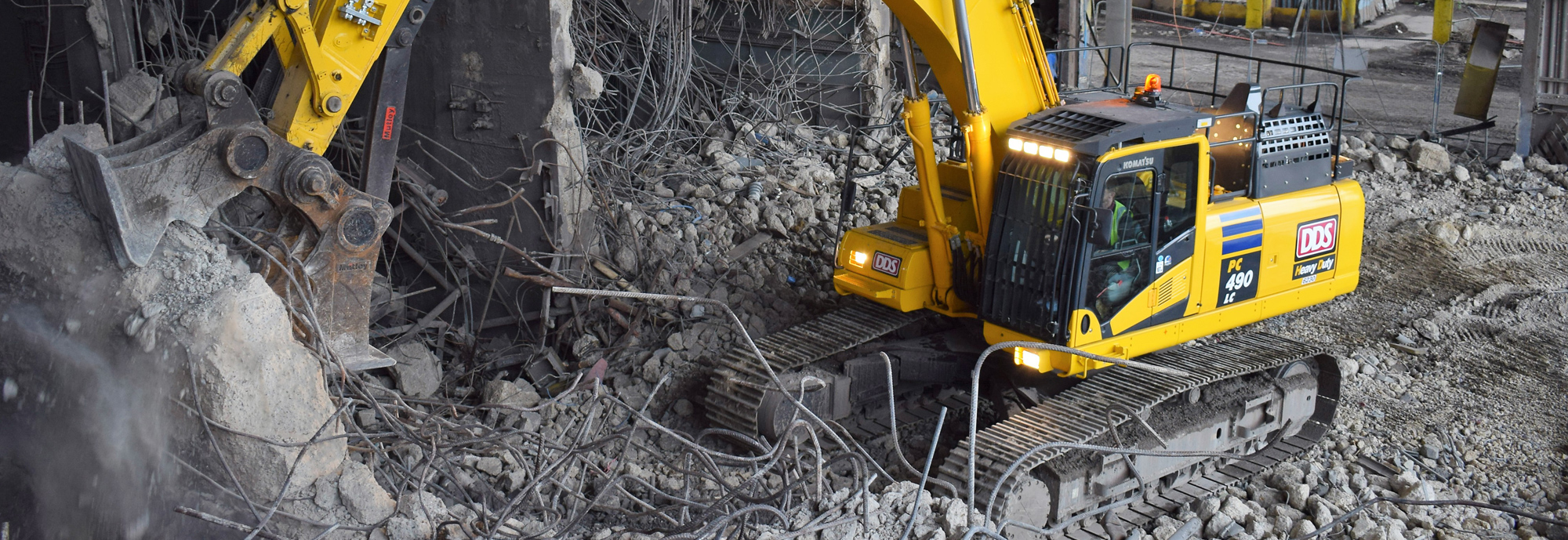
Apprentice demolition operatives work in groups to clear a site in preparation for a new construction project. They remove fittings and hazardous chemicals and recover anything that can be used before destroying or dismantling unsafe or obsolete buildings and structures, employing anything from simple hand tools to larger equipment and gear.
Responsibilities
Throughout your apprenticeship, you may help:
- put up guard rails, safety screens and lay dust sheets
- strip out fittings, remove doors and windows and dismantle roofs
- cut metal beams and girders into pieces ready for removal
- operate a crane-mounted magnet to recover metals
- separate reusable materials from waste
- load rubble and debris into mechanical crushers
- prepare sites for explosive demolition
- operate plant machinery to demolish structures
- dispose of hazardous materials, like asbestos, safely.
Salary
- Apprentice demolition operatives can earn £17,000 – £21,000
- Trained demolition operatives with some experience can earn £22,500 – £27,000
- Senior demolition operatives can earn £26,500 – £31,680.
Working hours
You will typically work 42 to 44 hours per week, including evening, weekends, and bank holidays whilst typically working away from home.
Working environment
You could work on a construction site.
Your working environment may be physically demanding.
You may need to wear protective clothing.
Qualifications
Qualifications you can achieve as an apprentice demolition operative include:
- Level 2 Demolition Operative – Entry requirements for this level include some GCSEs, usually including English and maths, or equivalent, for an intermediate apprenticeship. This qualification takes 24 months to complete.
Your time will be split between on-the-job experience (80%) and at college or training provider (20%).
Skills
On a demolition operative apprenticeship, you’ll learn:
- the ability to work well with your hands
- concentration skills
- knowledge of public safety and security
- physical skills like lifting, bending and carrying
- to be flexible and open to change
- the ability to use your initiative
- patience and the ability to remain calm in stressful situations
- the ability to use your judgement and make decisions
- to be able to carry out basic tasks on a computer or hand-held device.
Career path and progression
With further training, you could specialise in a particular demolition method, for example the use of explosives.
With experience you could become a site supervisor, safety officer or move into contract management.
An individual working from the bottom up on the CCDO career pathway would progress as follows:
- CCDO labourer
- CCDO apprentice
- CCDO demolition refurbishment operative
- CCDO advanced demolition operative
- CCDO chargehand
- CCDO site supervisor
- CCDO demolition site manager.
